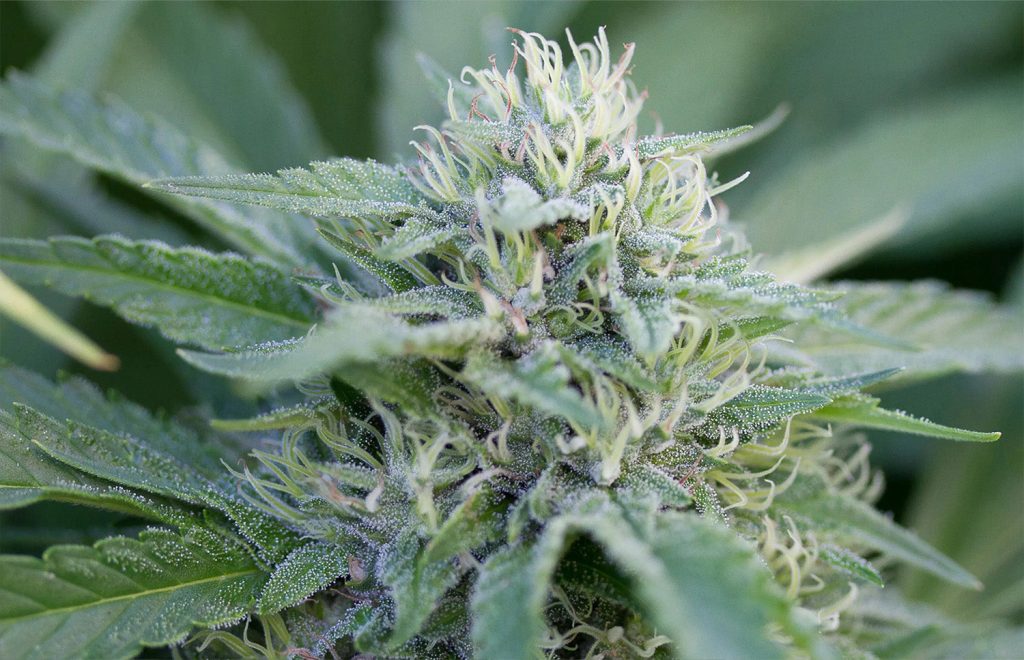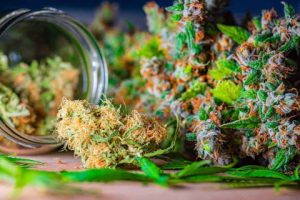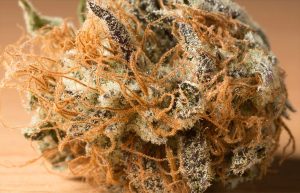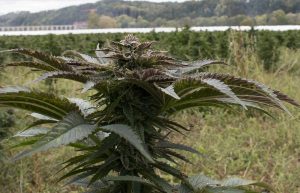- Summer is a hot and ideal period for growing cannabis outdoors, mother nature accompanies us in carrying out our tasks regarding the care of our beloved plants, but we must not forget that we still remain the main players in the success of this fascinating activity.
- Depending on the configuration of your plantation, whether you grow in the open air or in a greenhouse, this summer period rather evokes vacations, the beach, barbecues, outings and outdoor activities for the majority of people. between us. However, it is also a crucial moment to put our outdoor cultivation in the best possible condition, in order to obtain a high quality harvest.
- In this article, we explain the main key points when cannabis plants begin flowering outdoors. Follow the leader…
The summer period is ideal for vacations, long convivial evenings with family or friends, or simply relaxing after an often long winter season. However, it is also a crucial period for the good future of our dear cannabis plants which will evolve for many weeks outdoors, because a lot can happen from germination, through growth, which is followed by flowering period, before the long-awaited harvest finally arrives.
Although each step mentioned here is currently aimed at outdoor growing, it is also valid for obtaining a good harvest indoors. It is important to provide a certain amount of preparation and consideration during each phase, especially since during this period the stress generated by the high temperatures in certain geographical areas of the world can become a real problem for some. Many growers will choose either photoperiod feminized cannabis seeds, or an autoflowering option better suited to their possibilities.
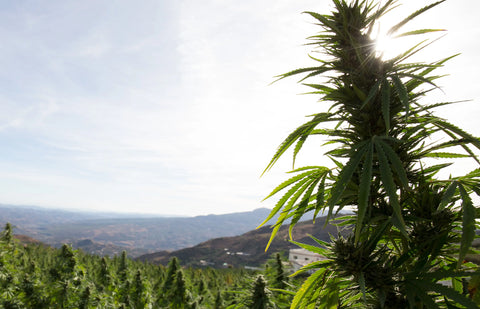
It does not matter which option each person chooses, because the main objective is to obtain healthy cannabis plants at each stage of the cultivation cycle, which must therefore receive appropriate care, with sufficient water resources, in nutrients, in light, in order to obtain delicious cannabis flowers full of resin trichomes. Depending on the location, you will also need to be vigilant about humidity conditions, in order to avoid the appearance of fungal problems.
We present here below the 5 key points on which you will need to concentrate your efforts when the flowering period begins, which are: watering, mulching, structural support of the plants, defoliation or leaf thinning, and the importance of the quality of lighting during the entire cycle.
Optimal watering
From the start, that is to say early from the stage of germination or development of seedlings, then growth (vegetative phase), it is very important to provide a water supply that meets the needs of each plant. , in order to avoid possible water deficiencies that could harm your cannabis culture. I would even say that you have to know how to anticipate things at this level when you cultivate, because very often it is much better to prevent than to cure. There is a double interest during this phase, because if hydration is an essential thing, nutrient intake is just as much.
It is also important to point out that global warming has disastrous consequences at this level, because the generalization of the rise in temperatures does not help us in any way. It is for this same reason that it is crucial to provide all the necessary nutrients to your cannabis plants during each phase of the growing cycle, week after week to strengthen their immune system.
This is why you will need to use a quality fertilizer corresponding to the different needs of the plants during the growth and flowering periods. But not only that, because the use of a stimulator promoting the health and development of your roots (up to one weekly application), which will allow you to obtain perfect vigor as well as optimal absorption capacity of the latter. .
The use of Trichoderma (harzianum) will also be beneficial for the life, protection and balance of your soil. We always advise you to preferably carry out your watering either in the morning or in the evening, when the temperatures are still quite cool or moderate, in order to avoid stress on the plants or causing root cooking. Therefore, avoid watering your cannabis plants between 11 a.m. and 6 p.m., as it is generally very hot in the majority of countries around the world during the summer during this time slot.
Be sure to use water whose temperature corresponds to the ambient air values, to avoid any possible thermal shock in the ground. It is also necessary to avoid any watering at night (especially during and at the end of flowering), as the humidity level naturally increases significantly in the air. It depends on the climate, however it is a fairly general trend around the globe. This can be a critical point if you are growing cannabis varieties that are not very resistant to fungal diseases.
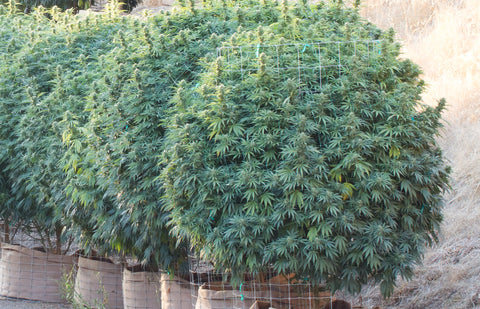
A detail which is also very important is that we concentrate our efforts on providing water to each plant at ground level, but there is also a major interest in also carrying out hydration, such as refreshing and rinsing. of all the leaves, because we must keep in mind that the stomata of the latter actively participate in the different gas exchanges during photosynthesis week after week.
Be careful, it is especially necessary to rinse the leaves during the vegetative growth stage, because if we repeatedly spray water on the pistils of cannabis flowers, we risk altering them, which could also suffer some burns from the sun outdoors. This is exactly the same for indoor growing, as artificial light illumination will produce the same effect.
Whether indoors or outdoors, and this also applies to CBD plants, you must also be very careful when rinsing the leaves, not to leave large drops of water on them, as this produces a magnifying effect on the latter and this can lead to fairly significant superficial burns, which can slightly hinder the photosynthesis of each plant.
We recommend using a good growth fertilizer until you see a quantitatively significant density of pistils appear, because this is the sign that demonstrates that your photoperiod cannabis plants are well underway in the flowering phase. Subsequently, it is advisable to ensure a transitional stage in the use of different fertilizers, by gradually reversing over approximately 7 to 12 days, the evolving needs of the growth phase towards those which are necessary at the stage of the bloom.
One thing that may be of some importance to growers located in hot regions where water supply is difficult is that an autoflowering strain always tolerates water deficiencies better than photoperiod strains. We owe this to Rudéralis genetics, which resists many difficult weather phenomena, this is explained by the nature of its original habitat (eastern European countries, Siberia, Hungary, Bulgaria, central Asia).
It is good to know that an Indica cannabis variety is more fragile than a Sativa plant for example regarding lack of water, this is easy to understand, because the vast majority of these varieties come from hot countries, it is which also explains that the heads they produce are more airy and elongated to better resist high humidity and especially the various pathogens that could appear and therefore gradually damage the entire harvest. The starting choice based on quality seeds is a crucial basis.
It is true that if you are just starting out, it may be interesting to grow autoflowering plants, from quality seeds like Critical+2.0 Auto, Moby Dick Auto, Critical Jack Auto or L.A. Vanilla Cake Auto. They require less special attention, they are less afraid of high temperatures, and also with fewer weeks of waiting, in order to offer you a harvest of high quality buds covered in resin trichomes.
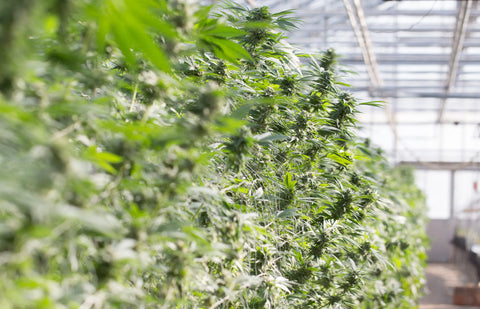
Insulation and protection of the soil thanks to mulching
When we talk about mulch or mulch in English, we evoke the possibility of usefulness of natural or synthetic materials, such as straw for agricultural use, wood bark, wood chips, perlite or simply crushed grass obtained when mowing your garden, in order to limit the phenomenon of water evaporation and possible thermal shock at the level of the substrate of your cannabis plants during the vegetative growth stage or the phase of flowering, which will allow you to harvest the precious, high-quality cannabis flowers that are so sought after.
Mulching is an excellent preventive method to protect the top layer of your substrate and ensure comfort for all of your cannabis plants. As we mentioned previously, this protective layer of the soil is most often composed of plants, woody waste or mineral rock, the thickness of which must be between 2 and 5 cm thick depending on the intensity of the heat of the region where you are growing.
Too high a temperature within the substrate could alter the microbial life of the soil, especially if an organic method is used. When many growers start out, we don’t think about these kinds of structural details, which are nevertheless essential week after week in order to finally obtain the harvest they hope for.
This method of soil protection is widely used in California, for example, quite simply because the summers there are very hot, as evidenced by the appearance of numerous fires (megafires) in recent years, but also because organic or organic cultivation is very established there, and that soil life plays a major role in ensuring that this cultivation method works optimally.
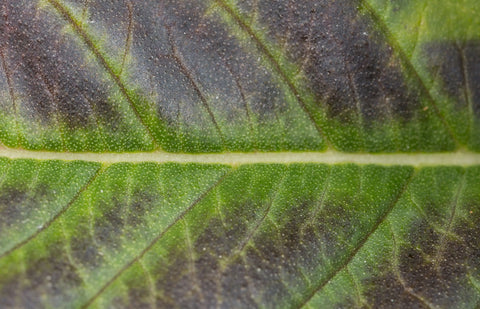
When we say that a soil is alive, it is a reality, it is also for this same reason that they commonly use geotextile pots, which serve directly to improve the respiratory capacity of the substrate, but also to promote the oxygenation of soil microbial life. The final result will be to boost the different aerobic metabolisms, such as the exchanges between the different biological agents present in the soil. The judicious choice of high quality cannabis seeds allows you to overcome many difficulties.
Particular attention must be paid when establishing seedlings after germination outdoors, because their fragility is high during the first 3 to 4 weeks. All these tips are equally valid for CBD plants. This is the reason why during this phase of vegetative growth, it is preferable to prepare them well, possibly under artificial lighting indoors, in order to strengthen them before their arrival in their final habitat.
Cannabis plant structure support
The use of a good support device for the vegetative structure of the cannabis plant has become an important step in recent years, especially with the appearance of modern American photoperiod strains on the global cannabis scene. Previously, cannabis plants had a more homogeneous vegetative structure, most of the time having the shape of a well-defined Christmas tree.
It must be admitted that nowadays the cannabis plant is evolving at different levels, varieties that have become very popular like OG Kush for example, need a structural support that guides and supports its vegetative growth, but not only that, because the real role of such a device is above all to support or reinforce the structure of the plant so that it can support the weight of the large and thick compact buds that will have to be harvested at the end of the growing cycle. . This is also the same for certain CBD-rich hybrids.
The structural support of a cannabis plant is made either using perforated nylon grid netting, or with a cylindrical metal cage which is often made from mesh used to make fences for private homes. Otherwise, it is possible to use classic stakes, the only problem with these is that the support of the cannabis plants will not be homogeneous and can sometimes be insufficient.
Most of the time, such a system supports a single cannabis plant, the latter must be placed either around or horizontally from the plant, so as to guide the growth of the latter to the desired height. Some growers sometimes place a first support net on the lower part of the cannabis plants, then a second at the level of the buds, in order to relieve the weight pressure exerted by the weight of the flowers.
If this phase is not achieved or too late, you can expect that some branches will fracture under the weight of the heavy buds full of resin trichomes. It would be a shame to have invested so much effort, money and time overall, only to end up with significant losses at the end of the cycle, at harvest time. Especially when it can be avoided…
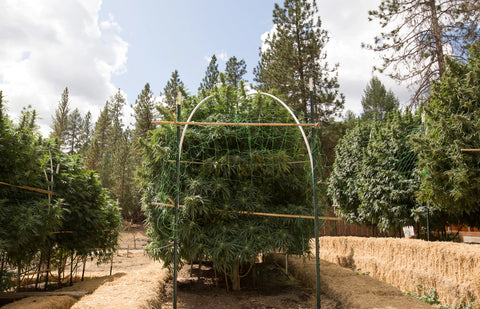
Defoliation or leaf thinning
Defoliation is a simple method that simply involves removing all the leaves that obscure the light from the areas where what we are all looking for grows, the precious cannabis buds full of resin trichomes. It is logical to think that this principle applies more to Indica plants than for a Sativa plant.
Yet while this general trend holds, with the availability of so many photoperiod polyhybrids on today’s market, this method can be used on virtually any strain grown from feminized cannabis seeds.
This is a method that will work wonders during the beginning of the flowering phase on a strain like L.A. Vanilla Cake for example, but it also works perfectly well on Grape Juice, Cookielato, Watermelon Runtz, Gorilla Frost, Starfire OG and Zkittlez 2.0. Reducing humidity within the canopy is crucial to prevent the emergence of harmful pathogens. This also applies to any strain with a high CBD content.
All of these varieties produce either a large quantity of leaves or the latter reach a size that is too large, compared to the overall size of the cannabis plant in question. The result is the same, that is to say that these leaves prevent swelling and the optimal development of high quality buds in general, because the production of resin trichomes, terpenes and flavonoids is also impacted.
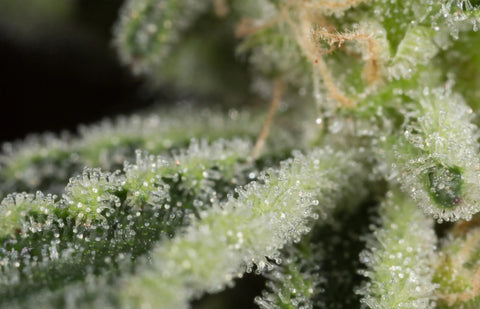
It is essential to pay close attention to the penetration of light into the plant’s canopy, as this will affect to a greater or lesser extent the production of cannabis flowers to be harvested, and therefore the overall yield of the harvest. .
In addition to this, this leaf mass can create an accumulation of humidity on certain parts of the plant, which can lead to the appearance of harmful fungi. The density varies from one plant to another, normally a Sativa plant is normally better endowed by nature than an Indica.
Some cannabis hybrids have varying distance between nodes, such as a leaf mass that is not the same from one strain to another. This is most often an intrinsic trait of the hybrid you are growing, but it can also be due to an excessive supply of nutrients during the growth phase.
Pay attention to the opposite phenomenon, that is to say that if you carry out excessive defoliation, the plants could be affected by too much stress, preventing essential photosynthesis, which would slow down the optimal development of the plant and also reduce producing beautiful, delicious buds full of resin trichomes.
The importance of lighting
The quality of lighting plays an important role in obtaining optimal development of your cannabis plants, and not only for the flowering stage. It is of major importance to give great consideration to the quality and intensity of lighting, whether indoors or outdoors.
This is much more important than you can imagine, because when your seeds come to life after germination, subsequently reaching the seedling stage, it is from that moment that the need to use lighting of suitable power and quality takes on its full meaning.
For all growers who use pots, indoors and outdoors, it may be interesting to move them within your space, because the light is not uniform depending on where each plant is placed. The quantity thus captured by each individual is random.
By moving them you will optimize this, which will optimize the production of weed buds, but also the quantity of resin trichomes and at the same time you reduce sweating and you improve its respiratory capacity.
If you are growing outdoors in the ground, it may be interesting to prune or clear the surrounding plants according to the possibilities of the site, while taking care to preserve a certain confidentiality, in order to optimize the homogeneous capacity of the lighting as much as possible.
